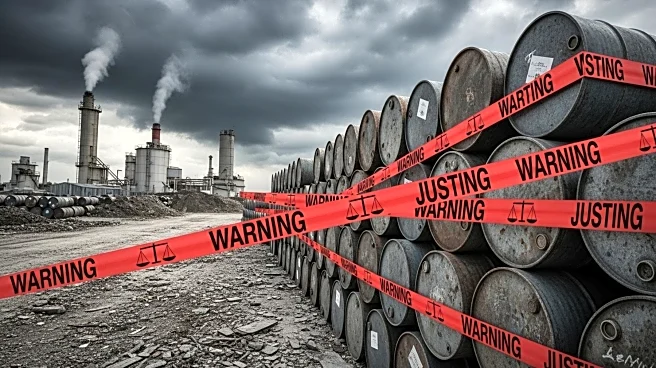What is the story about?
What's Happening?
Martin Harvey, a 64-year-old from Cornwall, has been ordered to repay £72,500 earned from operating an illegal construction waste site, or face a three-month prison sentence. Harvey pleaded guilty to four charges under the Environmental Protection Act 1990 and the Waste (England and Wales) Regulations 2011. The Environment Agency (EA) reported that Harvey ran the site on his land at Shepherds Farm, St Newlyn East, Cornwall, where he allowed construction and demolition waste to be dumped without a permit. The site contained 10,000 tonnes of mixed waste, including hazardous materials like asbestos. Despite warnings from EA officers, Harvey continued operations, claiming he intended to develop the land for agricultural buildings. He was sentenced at Truro Crown Court and must also pay £16,653.99 in EA and court costs within a year.
Why It's Important?
This case highlights the serious consequences of illegal waste management practices, which pose significant environmental and health risks. The EA's actions demonstrate a commitment to enforcing regulations and deterring waste crime, which can harm communities and legitimate businesses. The financial penalty and potential prison sentence serve as a warning to others engaged in similar activities. The presence of hazardous materials like asbestos underscores the potential danger to public health and the environment, emphasizing the need for strict compliance with waste management laws.
What's Next?
Harvey has until January 9, 2026, to repay the £72,500 or serve his prison sentence. The EA continues to monitor waste crime and encourages the public to report any suspicious activities. This case may lead to increased scrutiny and enforcement actions against other illegal waste operations. The outcome could also prompt legislative reviews to strengthen waste management regulations and penalties.
Beyond the Headlines
The case raises ethical concerns about the responsibility of landowners and businesses in managing waste. It also highlights the importance of community vigilance and reporting in combating environmental crimes. Long-term, this could lead to greater public awareness and advocacy for sustainable waste management practices.















